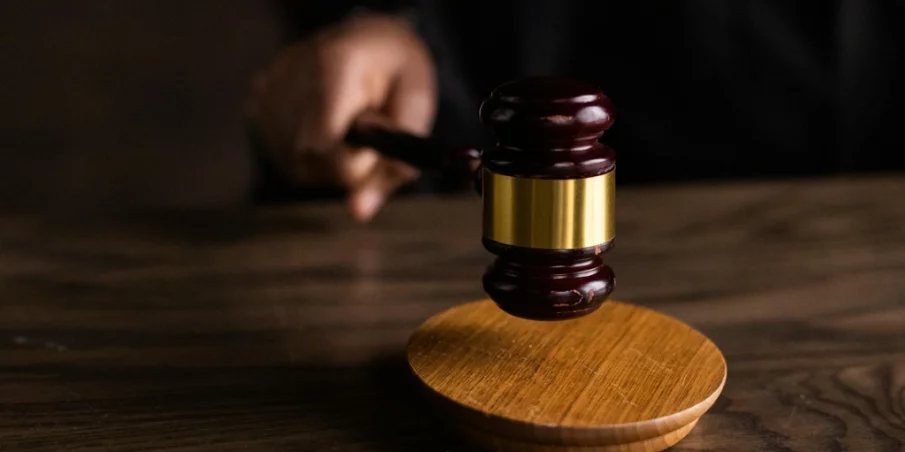Can You Report a Lawyer to the Bar Association?

In the legal profession, lawyers are held to high ethical standards to maintain the integrity of the justice system and protect clients' interests. When a lawyer's conduct falls short of these standards, there is a mechanism in place to address these issues – reporting the lawyer to the bar association. This blog post will dive into the intricacies of reporting a lawyer to the bar association, covering the reasons for doing so, the process involved, and the potential outcomes.
Understanding the Role of Bar Associations
Bar associations are professional organizations that govern the legal profession within a specific jurisdiction. They are responsible for setting and enforcing ethical rules and standards of conduct for lawyers. Each state and the District of Columbia has its own bar association, and there is also a national organization, the American Bar Association (ABA).
The primary function of bar associations is to regulate the legal profession and ensure that lawyers uphold their ethical obligations. This includes investigating complaints against lawyers and taking disciplinary action when necessary.
Reasons for Reporting a Lawyer to the Bar Association
There are various reasons why someone might consider reporting a lawyer to the bar association. Some common grounds for filing a complaint include:
Ethical Violations
Lawyers are bound by ethical rules and codes of conduct established by the bar associations. Violations of these rules, such as breaching client confidentiality, mishandling client funds, or engaging in conflicts of interest, can be grounds for a complaint.
Professional Misconduct
Professional misconduct encompasses a wide range of unethical or improper behavior by a lawyer. This can include neglecting client matters, misrepresenting facts, or engaging in fraud or deceit.
Incompetence
If a lawyer lacks the necessary knowledge, skills, or competence to handle a case effectively, it may be grounds for a complaint. This can include failure to understand legal principles or inadequate preparation for court proceedings.
Breach of Fiduciary Duty
Lawyers have a fiduciary duty to act in their clients' best interests. Breaching this duty, such as by mishandling client funds or engaging in self-dealing, can be a basis for filing a complaint.
It's important to note that not every complaint against a lawyer will result in disciplinary action. Bar associations carefully investigate each complaint and weigh the evidence before determining whether a violation has occurred and what, if any, disciplinary measures are appropriate.

The Process of Reporting a Lawyer to the Bar Association
The process of reporting a lawyer to the bar association typically involves the following steps:
Filing a Complaint
The first step is to file a formal complaint with the appropriate bar association. Most bar associations have specific procedures and forms for filing complaints, which may require detailed information about the lawyer's conduct, supporting documentation, and other relevant details.
Investigation
Once a complaint is filed, the bar association will initiate an investigation. This may involve requesting additional information from the complainant, interviewing witnesses, and gathering evidence from the lawyer in question.
Disciplinary Proceedings
If the investigation finds sufficient evidence of ethical violations or professional misconduct, the bar association may initiate disciplinary proceedings against the lawyer. These proceedings can vary in their format but generally involve a hearing or trial-like process where the lawyer has the opportunity to respond to the allegations and present a defense.
Potential Disciplinary Actions
If the lawyer is found to have violated ethical rules or engaged in professional misconduct, the bar association can impose various disciplinary measures. These may include:
- Private reprimands or admonitions
- Public censures or reprimands
- Suspension of the lawyer's license to practice law for a specified period
- Permanent disbarment, which revokes the lawyer's license to practice law
The severity of the disciplinary action depends on the nature and gravity of the violation, as well as any mitigating or aggravating factors.

Considerations Before Reporting a Lawyer to the Bar Association
Before reporting a lawyer to the bar association, it's important to carefully consider your reasons and gather relevant evidence. Keep in mind that the bar association's primary concern is protecting the public and maintaining the integrity of the legal profession, not necessarily resolving disputes between lawyers and clients.
It's also advisable to explore alternative resolution methods, such as mediation or fee arbitration, if appropriate. These alternative methods can sometimes resolve issues more efficiently and avoid the time and resources involved in a formal complaint process.
FAQ
What types of complaints can be filed against a lawyer?
Complaints can be filed against a lawyer for various reasons, including ethical violations, professional misconduct, incompetence, and breaches of fiduciary duty. Some examples include breaching client confidentiality, mishandling client funds, neglecting client matters, engaging in fraud or deceit, and failing to act in the client's best interests.
How do I file a complaint against a lawyer?
The process for filing a complaint against a lawyer varies depending on the jurisdiction. Generally, you will need to file a formal complaint with the appropriate bar association, following their specific procedures and guidelines. This may involve completing a complaint form, providing detailed information about the lawyer's conduct, and submitting supporting documentation.
Can I remain anonymous when filing a complaint?
In most cases, bar associations require complainants to provide their identity and contact information when filing a complaint. However, some bar associations may allow anonymous complaints in certain circumstances, such as when there are concerns about retaliation or other valid reasons for maintaining confidentiality.
How long does the complaint process take?
The timeline for investigating and resolving a complaint against a lawyer can vary significantly depending on the complexity of the case and the bar association's procedures. Some cases may be resolved within a few months, while others can take a year or longer, especially if disciplinary proceedings are initiated.
Can I appeal the bar association's decision?
In some jurisdictions, there may be options to appeal the bar association's decision regarding a complaint against a lawyer. The specific appeal process and requirements will depend on the rules and regulations of the particular bar association.
Conclusion
According to legal experts who write for us on legal matters, reporting a lawyer to the bar association is a serious matter and should not be taken lightly. However, it is an important mechanism for addressing ethical violations, professional misconduct, and protecting the public's interests. By understanding the reasons for reporting, the process involved, and the potential outcomes, individuals can make informed decisions about whether to pursue a complaint against a lawyer. Ultimately, the bar association's role is to maintain the integrity of the legal profession and ensure that lawyers uphold the highest ethical standards.
More to Read:
Previous Posts:







